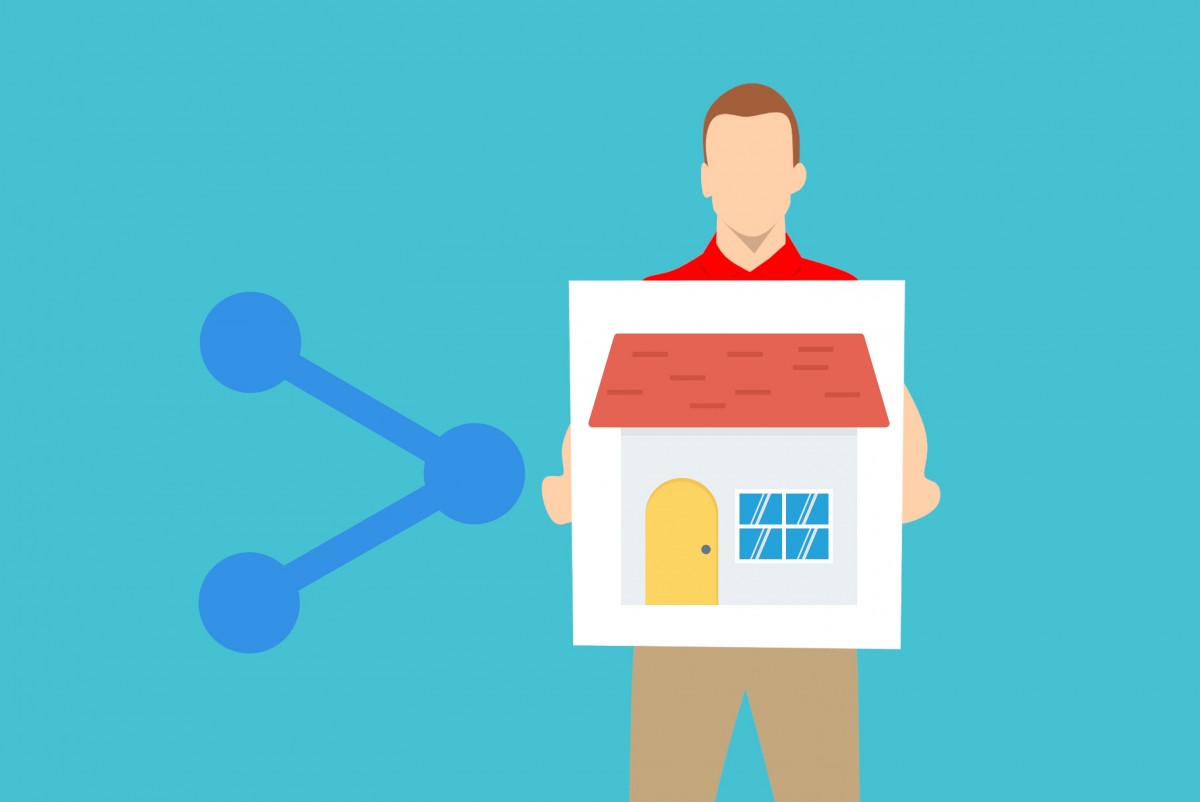Having a second property in addition to your primary residence can give you some extra monthly income and be a way to invest your earnings for the future.
However, it’s important to have realistic expectations. Like any other investment, with rental property investment, you’re not likely to get a large return quickly. You also have to cover some initial expenses, and there are risks involved.
Read on to learn more about investing in real estate rentals, including the criteria to consider before deciding on a property, the costs you have to cover, and how you can reduce those costs.
Determine Where You Want to Invest
Investing in rental properties takes a lot of money, so you should be careful about what type of property you buy and where.
In general, you can choose between a residential or commercial rental property. The former is rented out to individuals or families who want to live in the property, while the latter is for corporate entities and businesses. The two types are zoned differently and have different regulations.
Residential Vs. Commercial Rental Properties
Residential properties come in four varieties, depending on the number of families they can accommodate:
- Single-family homes
- Duplexes
- Triplexes
- Quadplexes
Commercial properties have five different types, depending on usage:
- Apartment buildings built for more than four families
- Industrial buildings like warehouses, workshops, and small factories
- Offices
- Retail spaces
- Buildings that are used for multiple purposes simultaneously
Although there are exceptions, the commercial sector is usually more appropriate for experienced investors with a large network of properties and employees who handle the specific nuances. On the other hand, the residential sector is better for first-time investors and individuals looking for a low-risk alternative to the stock market. So, for the rest of this section, we’re going to focus on residential rental properties.
What to Consider When Buying a Residential Rental Property
Want to know where you should buy a property? The short answer is in a neighborhood that’s on the rise and has low property taxes. Growing locations with a young population and/or a revitalization plan have excellent investment potential. You should avoid declining areas with high crime rates and diminishing employment opportunities.
Here are some major factors you should take into account before choosing a property:
Neighborhood
Your potential tenants will vary based on your neighborhood. If you buy a place near an industrial zone, you’re likely to have tenants who work in factories. Similarly, a property near a university is bound to attract students.
Additionally, your neighborhood determines your vacancy rate. If you have to rent out your property to students, you probably will have no tenants during the summer. In contrast, in a booming neighborhood with lots of young couples looking to settle down, you won’t have to wait long to find suitable tenants.
Property Taxes
It’s no secret that property taxes eat into your profits as a landlord. However, you shouldn’t necessarily look for low-tax areas. High taxes aren’t always a negative sign. In fact, they might indicate that the neighborhood has great amenities and well-maintained public facilities. This type of neighborhood attracts long-term tenants, and the low vacancy rate will probably make up for the high taxes.
Still, try your best to find low-tax areas with high potential, but don’t go for areas with unusually low rates. That’s almost always a sign of trouble down the road.
Also, make sure you visit the municipality’s assessment office to obtain accurate, up-to-date information. And don’t forget to see if the taxes might change soon. You don’t want to buy a reasonable property only to see your taxes skyrocket in a couple of months.
Future Development
As an investor, you need to find properties whose value will appreciate beyond the normal inflation rate. Having a lot of construction in an area is almost always a good sign of future growth.
However, large developments may put your property at a disadvantage and reduce its market values. Also, more construction means more competition for tenants, which often translates into lower rent.
Visit the municipality’s planning department to learn about the neighborhood’s future changes.
Other Criteria
In addition to these criteria, a potential rental property should be in a neighborhood with these characteristics:
- Good schools: If you’re buying a family-sized property, having decent schools nearby would increase the odds of finding suitable tenants.
- Low crime rate: No one wants to live next door to a gang of thieves or criminals!
- Lots of amenities: Various perks such as parks, movie theaters, restaurants, and gyms attract renters willing to pay a bit extra to live conveniently.
- High average rents: You’re most likely buying a rental property because you’re counting on the rental income, so being able to charge more rent for your property will make you happier.
- Public transportation: Being around major public transportation hubs makes your property more accessible and increases its rental value.
Find Potential Rental Properties to Invest In
Now that you know what criteria to consider, you should start your search. These tips can help you find a suitable property to invest in:
Don’t Necessarily Stay Close to Home
It’s tempting to want to buy a property close to your primary residence—perhaps in the same neighborhood, zip code, or city. But that might not be the wisest investment decision you can make. Remember that you want to maximize your profits on the property and its rent while minimizing your expenses and vacancy rate.
Do your research and try to find a high-potential location that doesn’t tie up all your savings without paying increasing dividends in the future.
Consider Repair and Maintenance Costs
Novice real estate investors tend to think that they can buy a relatively old house, do some renovations, and turn it into a decent rental property. However, this is only a good idea if you have experience with serious home improvement projects or you know a contractor who can do the work with relatively low costs. Why? Because you’re likely to underestimate the costs and time it takes to renovate an old house. So, at least for your first few properties, consider buying places that are in good shape and only need minor repairs.
As a rule of thumb, expensive properties tend to have expensive ongoing expenses. So, it’s better to start with a midrange home in a booming zip code than to buy the most expensive house you can afford with your money. The opposite is also true: don’t buy properties in bad neighborhoods or in poor conditions just because they’re cheaper.
Have Your Downpayment Ready
High-potential properties are hard to come by, and once they appear, you need to be ready to close the deal immediately.
You probably know that buying a property requires a downpayment. But you might not know that the downpayment for a rental property is much higher than for a house you want to live in. You need to put down at least 20% of the purchase price as a downpayment before you qualify for a mortgage—much higher than the 3% on your current house.
Nevertheless, you don’t have to have the money in cash. You can obtain the money through a personal loan or other financing options. As long as you have a plan for when the right property comes along, you should be fine.
It’s also a good idea to get pre-approved for a mortgage when you’re considering buying your first investment property. Doing this has several advantages. Most importantly, you’ll be confident that when you find the ideal property, your mortgage request won’t be rejected. You’ll also know your estimated mortgage payment per month, and you’ll fix the interest rate for some time.
How Much Money Does It Take to Buy a Rental Property?
By now, you’re probably wondering how much money you have to pay for an investment property. You may pay for the property in cash or take out a mortgage. Financing solutions are more attractive because you don’t have to pay for the entire property upfront. However, you end up paying more in monthly payments if you factor in the interest rates and fees.
The actual amount you pay for a property is going to be higher than the purchase price, and it’ll vary according to your downpayment, financing, insurance, repairs, and closing costs. Let’s go a bit deeper.
Downpayment
As we mentioned, you need to put down at least 20% of the purchase price as a downpayment. So, if you’re buying a duplex at $250,000, you’ll need at least $50,000 for the downpayment. You can obtain the rest through bank financing.
If you’ve taken out more than four mortgages already, some banks might deny your request for a new mortgage. Other banks might be willing to lend you money, but they’ll raise the minimum requirement to 25%, which means $62,500 in our example.
Home Inspection
You need to make sure that the property is in good condition before you buy it. A home inspection can set you back around $300 to $400, depending on house size and location. If you need additional inspections for termites and mold, the price can go up to $600. Remember that spending a few hundred dollars on a home inspection can save you thousands down the road, so never skip it.
Closing Costs
Investing in real estate, and in particular buying a rental, involves extensive paperwork. The bank will charge you an origination fee (between 0.5% to 1%) for processing your loan application. You’ll also have to pay recording fees to register your purchase, which might go up to a few hundred dollars. Additionally, you should consider tax certification costs, title fees, and appraisals. You should allocate around 3% to 4% of the purchase price to these closing fees.
Continuing with our example, you should set aside around $8,000 for your closing costs, separate from your downpayment.
Repairs
Unless you’re buying a brand new house, you’re bound to have some repairs on your hand. You might need to fix the HVAC system, install new tiles in the bathroom, or add a fresh coat of paint to liven up the place and make it more attractive.
These things add value to your investment property and let you increase your rental income, but they initially cost you a not-so-small amount of money. So expect $10,000 to $40,000 in repair costs.
Total Amount Needed
To get a ballpark number of how much cash you need to buy a rental property, simply add up the numbers for the mentioned items. So, for our example, we get:
Downpayment = $50,000
Home inspection = $400
Closing Costs = $8,000
Repairs = $10,000
Total cash needed for purchase = $68,400
Pro tip: It’s advisable to have more funds available than the bare minimum. Most banks require that you have at least six months of reserves for all your mortgages, in addition to your downpayment. They want to make sure you have the cash flow to cover six months of mortgage payments for all the mortgages in your name—including your residence.
Other Expenses to Consider
Owning a rental property involves other expenses as well. Although you probably won’t have to pay these costs at purchase time, you need to anticipate them.
Property Taxes
Taxes for real estate investing can get complicated quickly. In general, passive investors—those who have a full-time job outside of real estate investing—get more favorable tax deductions. For example, if you’re categorized as a passive investor, you can deduct up to $25,000 against your rental income. And losses of the same amount can be carried to next year.
Here are some things you should know about property taxes for rental real estate:
- Your rent is taxable in the same year that you receive it.
- Any expenses paid by the tenant are regarded as income for you, and you can deduct that expense from their rent.
- If you receive a security deposit to return in cash when the tenant moves out, that deposit is not taxable.
Property Insurance
All real estate investing efforts come with risks, and insurance is a way to mitigate those risks. As a landlord, a standard insurance policy can cover you against damages and theft. But most importantly, it offers protection against loss of rent. Some policies also offer liability coverage to protect the landlord if someone gets injured on their property.
The actual cost of landlord insurance varies based on coverage and property. However, it can be anywhere from $600 to $2000 per year.
Homeowner’s Association Fees
If your property is located inside the jurisdiction of a homeowner’s association, you’ll automatically be a member of the association, and you’ll have to pay a fee per month. This money will go toward improving the association’s community.
The fees vary widely. They can range from around $250 to almost $600. Obviously, with higher membership fees, you can expect better and more services, but that’s not always the case. Talk to the association’s representatives and make sure you know exactly what you’re paying for.
Unexpected Costs
Other than maintenance and repairs, there’s always a chance that something unexpected will happen and cost you a substantial amount of money. Burst pipes, roof damage, electrical short circuits, and pest infestations are just a few examples. It’s wise to have around 20% to 30% of the purchase price available as an emergency fund.
Can You Buy Rentals with Less Money?
Other than negotiating with the current owner, there are several tricks you can use to reduce the amount of cash you initially need.
First, you can add the closing costs to the property’s price and ask the owner to cover them. For example, instead of closing the deal at $250,000, you can set the price at $258,000 (purchase price plus the closing costs) and have the owner pay the costs. This way, you’ll only pay 20% of the closing costs upfront, and the rest will be calculated into your mortgage.
Secondly, you can buy the property as an “owner-occupant.” This method is a bit harder since you have to relocate, but it comes with a significant downpayment advantage. If you’re willing to live in the property for the minimum required amount of time (usually a year) to qualify as an owner-occupant, then your downpayment can drop to as little as 3%, which is a huge reduction compared to the 20% you pay as an investor! The inconvenience might be worth it.
Finally, most states offer a downpayment assistance program by giving qualifying applicants grants to pay their downpayment. If you qualify, you might be able to get your initial out-of-pocket portion of the downpayment to around $1000! Veterans and people living in less populated areas can also enjoy special loans.
Is It a Good Time to Invest in Rental Property?
To determine the best time to buy a rental property, you need information about rental income, vacancy rates, expenses, and more. These items vary from one location to another, so it’s hard to give a generic response.
That said, with the coronavirus pandemic raging over the past few months, we’re expected to experience a severe recession, which will probably last for a long time. So it’s better to avoid aggressive purchases and wait to see when the economy starts to recover. Only buy properties with an extremely high probability of remaining cash flow positive, even if the worst happens.
Now more than ever, you need to be patient. It’s never wise to make an investment decision in a rush. You need to consider your options carefully and make an informed decision, which is a time-consuming process.
Is It Worth It to Own a Rental Property?
Having an investment property to rent out is a viable way to increase your monthly cash flow. However, its performance depends on many factors, some of which are outside your control—for example, the overall housing market.
Like any other investment, you should be in it for the long run. Real estate investing won’t generate astonishing returns overnight. You’ll need to be patient and ready to take short-term losses for long-term gains.
Advantages of Rental Real Estate Investment
A rental investment property will bring you money every month, which will help with the mortgage payment. If you manage your cash flow well, buy properties below market value, and manage to obtain appropriate financing, rentals can be one of the best forms of real estate investing.
What’s more, your rent will go up with inflation, so you’re covered against the gradual depreciation of your earnings. And depending on your state, you can enjoy various tax benefits because you can write off most of your expenses.
Disadvantages of Rental Real Estate Investment
People who invest in real estate have a large sum of money tied up in one or several properties. As a result, they don’t have diversified portfolios, which means they have a higher risk when major market shifts occur.
Finally, if you think that you’ll need your money in a few months or a year, don’t invest in real estate. Real estate is inherently much less liquid than other forms of investment like stocks, meaning that you might not be able to turn your real estate assets into cash as quickly as you would like.




